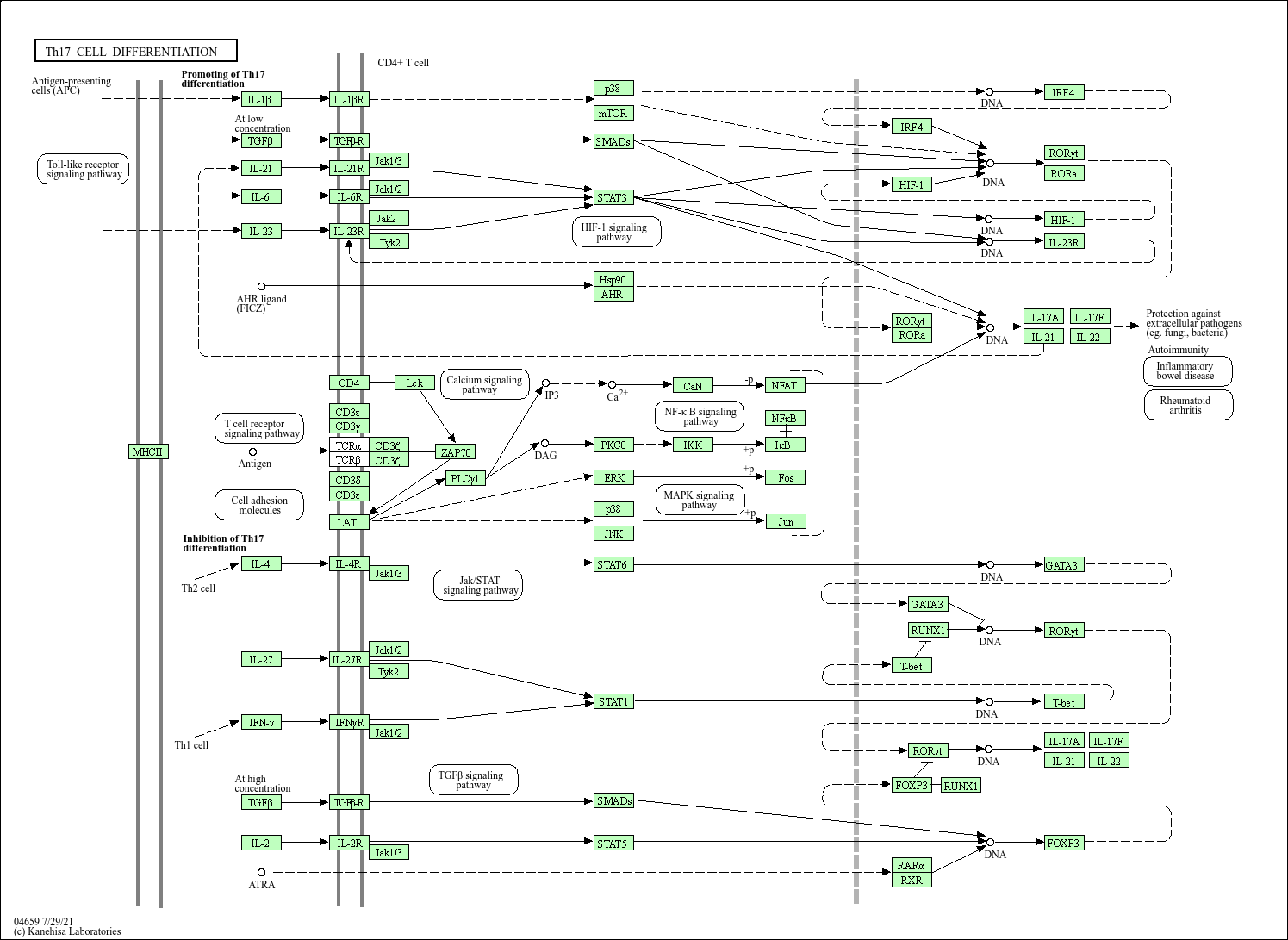
Th17 cell differentiation
Interleukin (IL)-17-producing helper T (Th17) cells serve as a subset of CD4+ T cells involved in epithelial cell- and neutrophil mediated immune responses against extracellular microbes and in the pathogenesis of autoimmune diseases. In vivo, Th17 differentiation requires antigen presentation and co-stimulation, and activation of antigen presenting-cells (APCs) to produce TGF-beta, IL-6, IL-1, IL-23 and IL-21. This initial activation results in the activation and up-regulation of STAT3, ROR(gamma)t and other transcriptional factors in CD4+ T cells, which bind to the promoter regions of the IL-17, IL-21 and IL-22 genes and induce IL-17, IL-21 and IL-22. In contrast, the differentiation of Th17 cells and their IL-17 expression are negatively regulated by IL-2, Th2 cytokine IL-4, IL-27 and Th1 cytokine IFN-gamma through STAT5, STAT6 and STAT1 activation, respectively. Retinoid acid and the combination of IL-2 and TGF-beta upregulate Foxp3, which also downregulates cytokines like IL-17 and IL-21. The inhibition of Th17 differentiation may serve as a protective strategy to 'fine-tune' the expression IL-17 so it does not cause excessive inflammation. Thus, balanced differentiation of Th cells is crucial for immunity and host protection.











